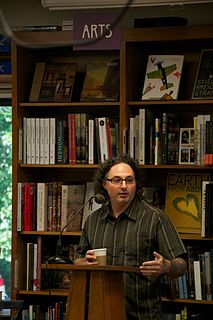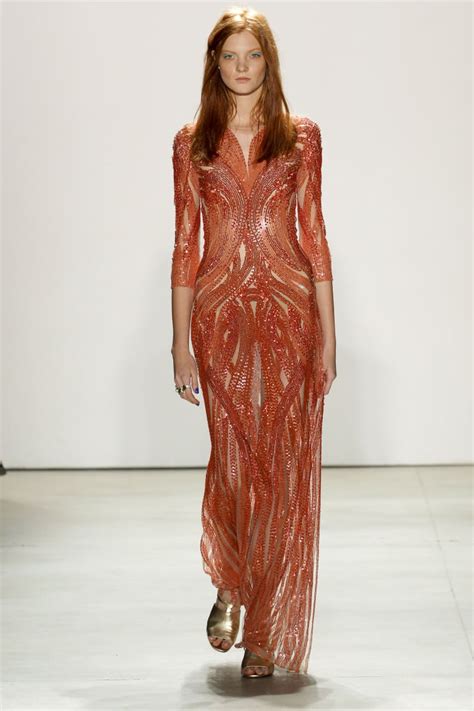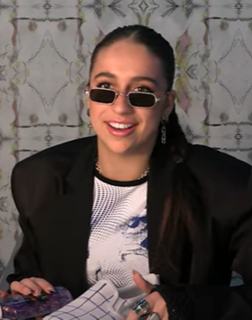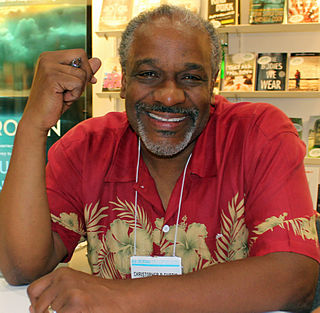A Quote by Damian Kulash
A lot of things get made this way: someone imagines what they want to make, then very carefully plans every step of the process, then sets about making it. That's usually the efficient, reasonable way to get something done, but it limits you to ideas you can think of in advance.
Related Quotes
I like making series, for a couple reasons. One, the repetition of routine is very healthy because I can get a little crazy; I want to be making things all the time. And if I publish something every week, I don't have to put every idea I have into one piece. It's more like, here's one idea: execute it, see it through, think about it, do it the best you can. And then there are going to be ten more ideas that come while you're making that, because creativity works that way.
There were choices that we've made as a Little Dragon, that we had to make at the time because we needed the money. I think everything has its context. It is way easier to say no to things now then it was five years ago, for sure. Back then we were grabbing at every opportunity we could just to sustain a name and let people know, "Hello, hello! We're here! Look at us!" It's really sort of taken its time and grown, and it's been a very step-by-step process.
It's very nerve-wracking dressing someone because you obviously do everything you can to get them to be interested in something you've done, and then you hear they're wearing it, and then, obviously, they're going to step out in it, and you want to know that it's all going to work and what everybody's going to say about it.
I believe you make your own luck. My motto is ‘It’s always a mistake not to go.’ So I jump on the airplane, try new things—sometimes I get in way over my head, but then I think, I’ll work my way out of this somehow. A big part of making your own luck is just charging out of the gate every morning…The thing I love about living in New York is that I never fail to get up in the morning and think, Something adventurous is going to happen today. The energy is operating at full throttle all the time. And if you want to be lucky you’ve got to go out and take advantage of it.
Making movies has not only been an incredibly collaborative process but there's three big parts: pre-production, shooting itself and then post-production, which leads into marketing. And if you're passionate about the movie and you believe in it, and it would make sense that you are having done it, then you want to get out and promote it. It makes it a lot easier when the film is good and people are enjoying it.
1. It ain't as bad as you think. It will look better in the morning.
2. Get mad, then get over it.
3. Avoid having your ego so close to your position that when your position falls, your ego goes with it.
4. It can be done!
5. Be careful what you choose. You may get it.
6. Don't let adverse facts stand in the way of a good decision.
7. You can't make someone else's choices. You shouldn't let someone else make yours.
8. Check small things.
9. Share credit.
10. Remain calm. Be kind.
. . . people use tricks to get you to think the way they do or take away something you have that they want. One way they do that is to interrupt your normal way of thinking and take you by the hand and guide you down the path they want you to take. Father says they make you take a teeny-weeny step in their direction, and then they start to nudge you a little further down the path and before you know it, you're running full speed with them in a direction that you probably wouldn't have gone alone.
[In the case of research director, Willis R. Whitney, whose style was to give talented investigators as much freedom as possible, you may define "serendipity" as] the art of profiting from unexpected occurrences. When you do things in that way you get unexpected results. Then you do something else and you get unexpected results in another line, and you do that on a third line and then all of a sudden you see that one of these lines has something to do with the other. Then you make a discovery that you never could have made by going on a direct road.
Separate out the creative act from the act of editing and execution. Make it a two-step process. First, let ideas flow and encourage EVERY idea to make it to the whiteboard. Don't criticize, judge, edit, budget, or worry. An idea on the wall can't hurt anyone, so let them rip without restriction. After any and all ideas have the opportunity to "come out to play", only then should you apply your analytical and logical side to the effort. Don't mix the creative process with the editing process or you'll kill your ideas before they even get a fighting chance.
I think, for the good of the country and the fact that you don't want a question coming up every time there's a decision made, [Donald Trump] should basically take himself out of it and just be a passive participant in the sense that he has no decision-making, no involvement and no decisions get made separate from him. Which is the way the way it's done for more Cabinet offices. Or I think all Cabinet offices.
Just don't let anything get in the way of what you want to achieve. A lot of people get knocked back by friends, or family, or peer pressure. If you have a talent and want to do something with it, it's down to you. If it's what you really want then go after it and be very selfish... You have to remain committed, you have to stay focused and you have to be selfish.




































